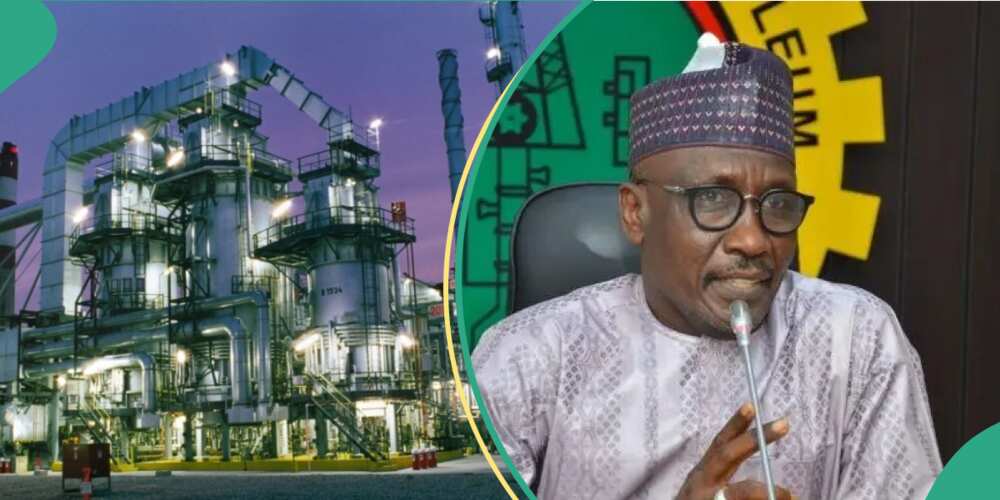More Jobs, More Forex: How Functioning Refineries Will Benefit Nigerians
Refineries, often considered the backbone of a nation's energy sector, play a pivotal role in driving economic growth and ensuring energy security. These complex industrial facilities are responsible for converting raw crude oil into a range of valuable products that power industries, homes, and transportation systems.
Unlock the best of Legit.ng on Pinterest! Subscribe now and get your daily inspiration!
The benefits of a refinery to a country are far-reaching and multifaceted, impacting not only the energy sector but the overall economy and even national security.
In this article, Legit.ng highlights some of these benefits below:

Source: UGC
1. Energy Security for Nigeria
Oil refineries play a pivotal role in ensuring a nation's energy independence. By processing crude oil into various refined products such as gasoline, diesel, and jet fuel, Nigeria can reduce its reliance on external energy sources.
PAY ATTENTION: Share your outstanding story with our editors! Please reach us through info@corp.legit.ng!
This would shield her from the uncertainties of global oil markets, geopolitical conflicts, and supply disruptions.
2. Job creation for government
The establishment and operation of oil refineries would create a significant number of direct and indirect employment opportunities for Nigerians.
From skilled engineers and technicians to support staff and service providers, the industry stimulates job growth across various skill levels, contributing to local economies and enhancing livelihoods.
Aliko Dangote made the following assertion about job creation ahead of the launching of his refinery in Lagos in May 2023.
The successful completion of the refinery will not only generate both direct and indirect employment opportunities but will also facilitate the transfer of skills and technology to the downstream sector, resulting in further benefits.
3. Economic growth of Nigeria
Refineries stimulate economic growth by the employment of thousands of Nigerians, thereby boosting their purchasing power.
Furthermore, the growth of downstream industries that rely on refined products, such as transportation, manufacturing, and agriculture, generates additional economic activity.
Energy analyst, Uyime Udoh speaks about the effect that working refineries will have on Nigeria's economy. He says:
Nothing boosts an economy like availability of job opportunities. A single working refinery can employ as many as 10,000 people. Nigeria has no less than five refineries. Imagine if they are working at their outmost output, more people will be employed, not only at the refineries but also in the value chain of supply and distribution. This will in turn, boost purchasing power and in other words ignite economic growth in the country.
4. Revenue Generation for government
Refineries generate substantial revenue for governments through taxes, royalties, and other fees associated with the extraction, refining, and distribution of petroleum products.
These funds can be channeled into public welfare programs, infrastructure development, education, healthcare, and more, fostering holistic socio-economic progress.
5. Trade balance improvement
By producing refined petroleum products domestically, a Nigeria can reduce its reliance on imports, leading to a more favourable trade balance. This can contribute to overall economic stability and reduce vulnerabilities to international market fluctuations.
6. Forex earnings for the country
A country without a functioning refinery will most likely depend on the importation of petrol from other countries. In this case, it will expense a large amount of its foreign exchange paying out other countries.
If all of Nigeria's refineries were functioning at 100%, there would be no need to import refined oil and the forex used for the transactions would be saved and used for developing infrastructures.
Presidential Spokesman, Ajuri Ngelale, emphasises this point thus:
Nigeria spends 10 billion a year on foreign exchange paying out to refineries and partners to get the product exchanged from crude to refined PMS. The money would be saved in the central bank as a result of having working local refineries.
7. Technological Advancement of Nigeria
The operation of refineries necessitates advanced technologies and engineering expertise.
Consequently, countries with refineries become breeding grounds for innovation, driving research and development initiatives that can transcend the energy sector and contribute to scientific advancement.
Charles Omoni, marketing officer at Ogini oil and gas says:
The process of refining crude oil into different products counts for technological advancement. The most advanced technology is required in the processes. If Nigeria is to advance its refineries, it would mean patronage of these highly technological facilities and expertise. This will set set it up amongst countries in this level of technology.
In conclusion, refineries provide a country with a multitude of benefits that extend beyond the energy sector.
Beyond merely supplying energy, they foster self-reliance, economic prosperity, technological prowess, and national security.
As Nigeria navigates an evolving energy landscape, harnessing the benefits of oil refineries remains a judicious strategy for sustained growth and stability.
President Tinubu assures Nigerians Port Harcourt refinery will work
In related news, Legit.ng reported that President Bola Tinubu has provided an assurance that the Port Harcourt refinery is slated to commence its operations by December 2023.
This commitment was conveyed through an official statement by Dele Alake, who serves as the president's special adviser on matters of special duties, communications, and strategy.
The disclosure was made on the 2nd of August, 2023. Within the statement, it was highlighted that President Tinubu made this pledge during a meeting with the leadership of the Nigeria Labour Congress and the Trade Union Congress.
President Tinubu gave his word that the commencement of production will follow the successful conclusion of the ongoing rehabilitation contract between the Nigerian National Petroleum Company (NNPC) Limited and Maire Tecnimont SpA.
Source: Legit.ng





